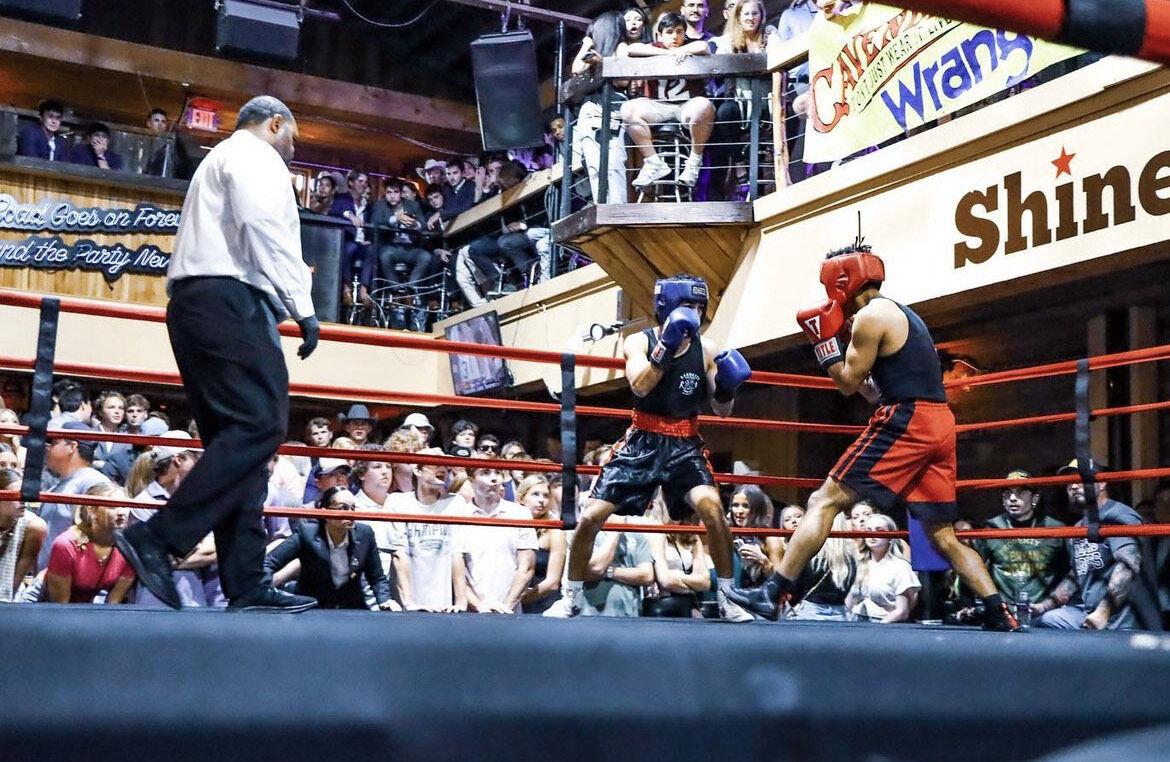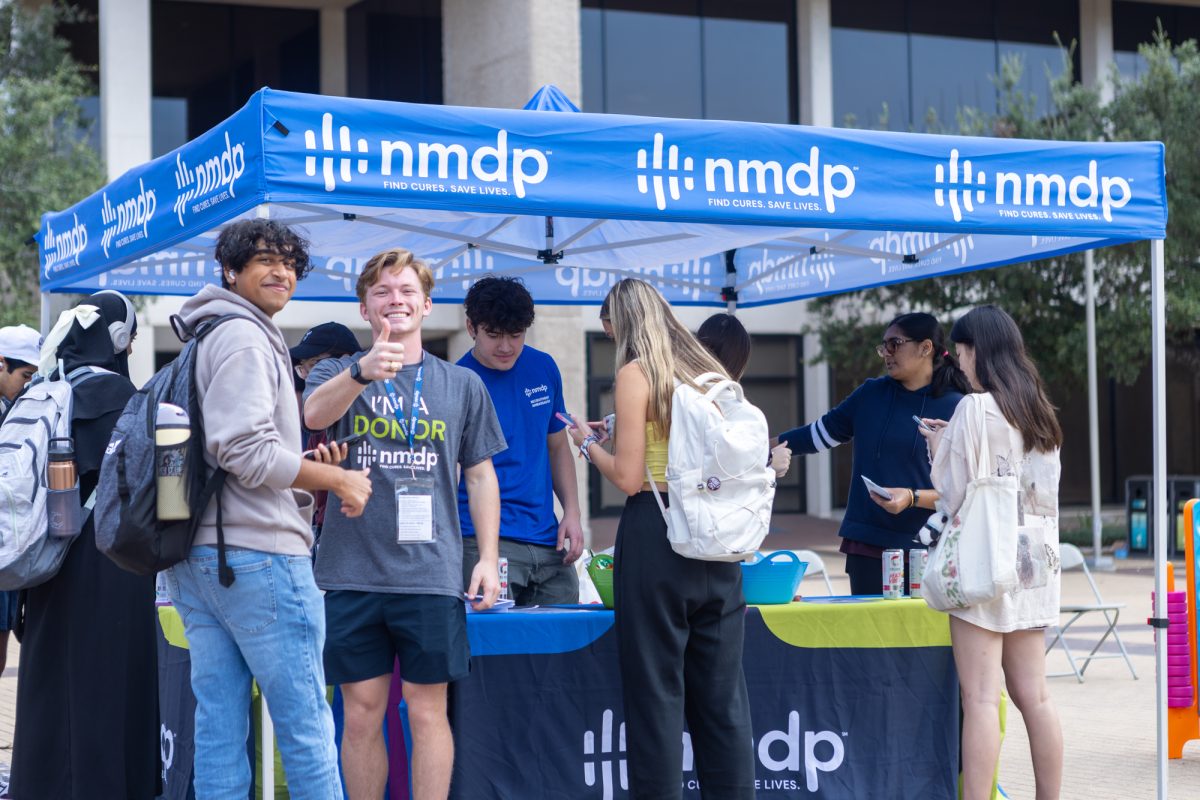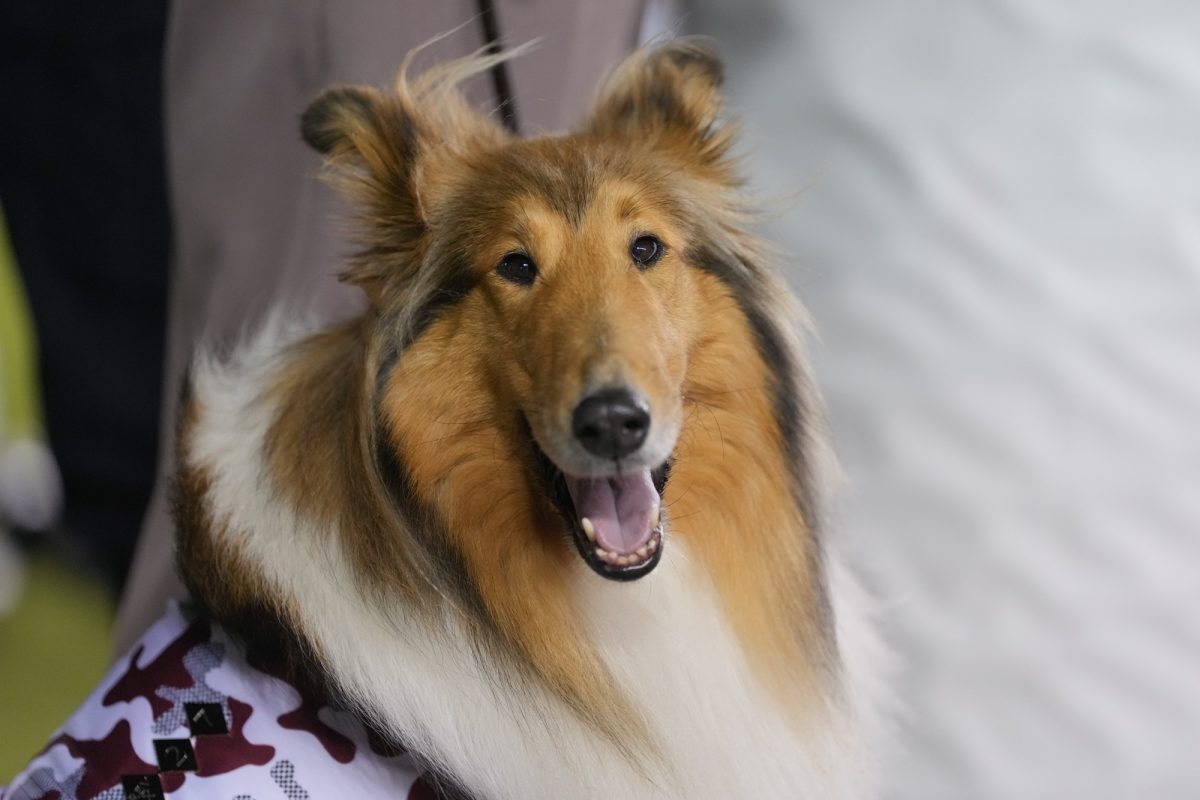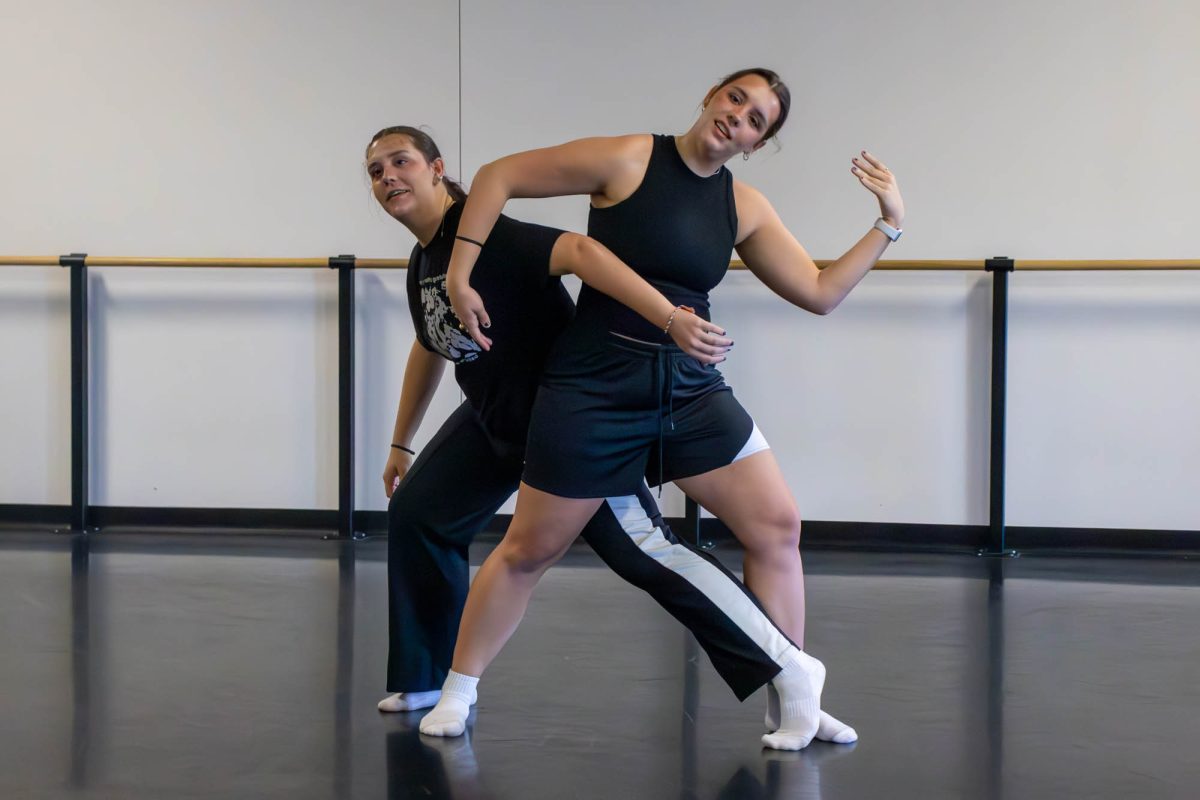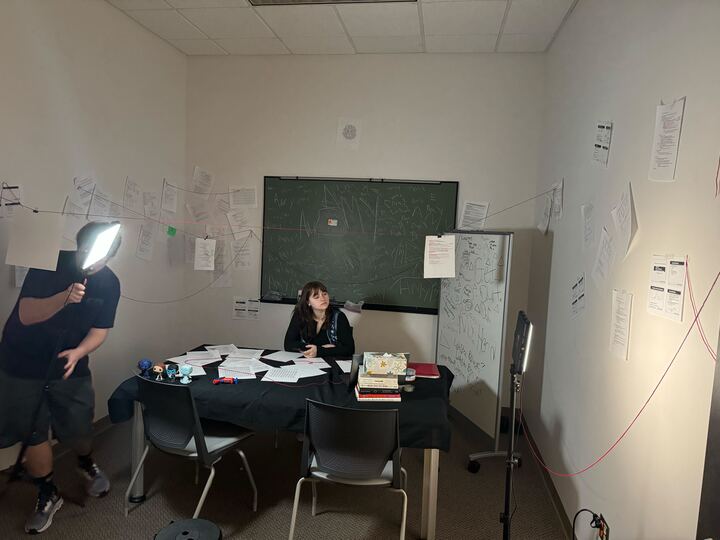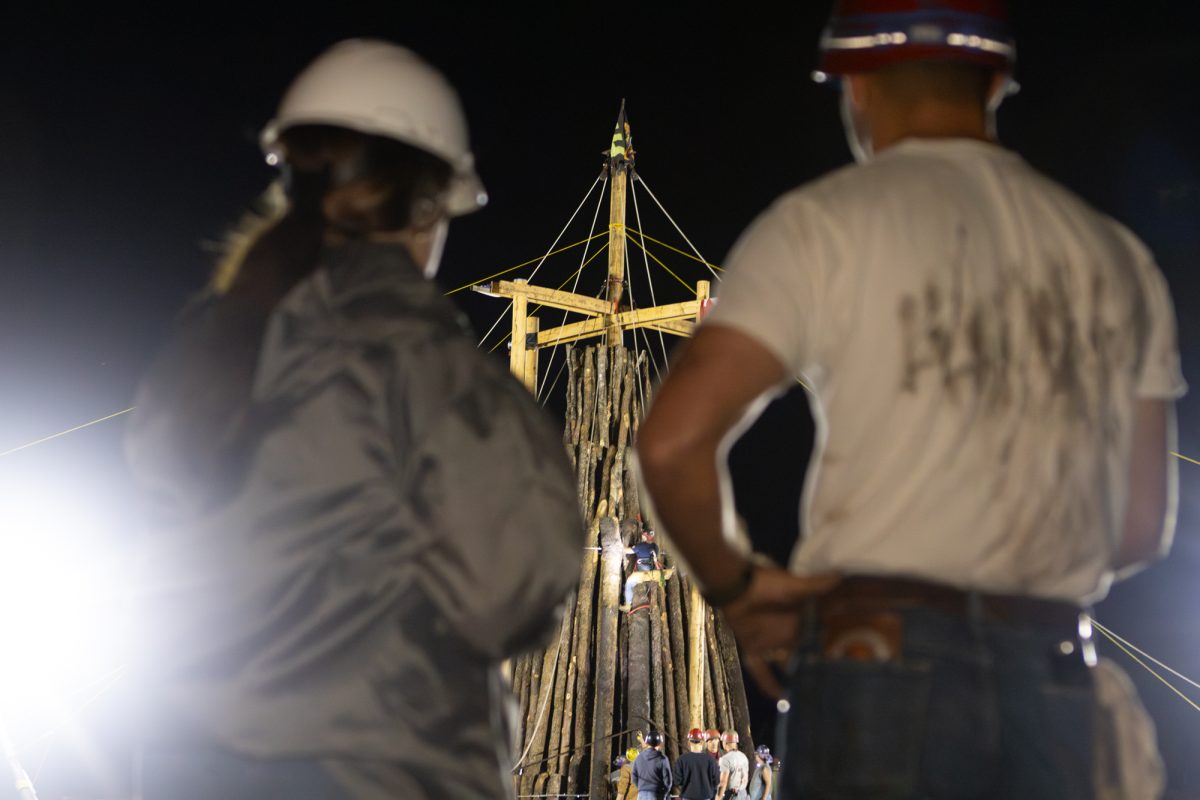Matthew Perez approaches his opponent to throw two quick jabs but gets rocked in the face by a right hook.
Political science junior Matthew Perez competed in his first amateur fight at Northgate’s Shiner Park earlier this year. His passion for the sport is evident through his determination to pursue boxing and his willingness to sacrifice his usual lifestyle in order to prepare.
In preparation for the fight, Perez, weighing 135 lbs at the time, said he changed his diet once the fight was confirmed.
“Before, I thought I was gonna have to go up in weight because it’s kinda hard to find someone who’s 21 years old at my weight and I ended up getting to 141 lbs,” Perez said. “I was eating 3,000 calories a day, I’m used to eating about 1,500, but I ended up cutting that weight in the end.”
Perez said he went to Bryan-College Station Boxing, owned by Carl Perry, to train. Perry is a retired mixed martial artist and works as the head instructor. He coaches boxers and holds classes for anyone interested in pursuing the sport.
“[Perry] was super nice, he allowed me to use his gym for the time … we had days where you would work on the endurance of all your muscles, and exercise for better athletic performance like your power and your speed,” Perez said.
Perez said he had days where he would practice his technique during sparring matches and build up his stamina running.
Oceanography junior Mason Kraus worked with Perez for many years and continues to support him. Kraus said leading up to the fight he eliminated the thought of Perez losing because he believed it would interfere with Perez’s mentality.
“From the beginning of the first round we both were trying to bully each other, ” Perez said. “I should’ve tried to pick him apart from farther angles, but I went in and tried to get inside.”
Perez said that technique didn’t work at all because they kept getting tangled up.
“My coach in the corner told me this guy is swinging wild,” Perez said.
His coach said to take a step back, shoot the jab, then throw the uppercut and let his foe walk up to him, said Perez.
“I took that with me to the second round and I got an eight second count just using my footwork and throwing that jab from the outside,” Perez said. “Then I got another eight second count shortly after that, he said he wanted more so I threw a couple good uppercuts and he stopped throwing for a second he dropped his hands.”
Perez said in that moment, he started attacking more aggressively when the referee stopped the fight to call it off after finding out the opponent dislocated his shoulder.
“At first it felt surreal,” Perez said. “I thought, ‘Oh shoot, I actually just won,’ and I went over to my coach, celebrated with him first then I went to the middle. They held my hand up [and] confirmed that I won, marked it in my book on my record.”
Kraus said the moment was so beautiful and he wanted to cry because he was happy for Perez since he has been working so hard toward this goal for a long time.
“I was so excited I was screaming my lungs out because that’s my best friend right there,” Kraus said.
Robert Lee Perez taught his grandson the basics of boxing. He told his grandson that he saw that he had a love for the sport because he endured the training, the regimen, the sparring and the diet. Mathew’s grandfather said, “He resembled [my fighting style] quite a bit, so that’s why I was especially proud because he carried my name also.”
Supply chain management senior Cooper Cavander organized the Aggie Fight Night event through his fraternity Sigma Chi.
“We did it for the Huntsman Cancer Institute out of Salt Lake City, Utah,” Cavander said.
Cavander said he recruited fighters, registered and insured them through USA Boxing, acquired sponsors, rented the ring, hired a doctor, hired referees, security, rented a venue and found a gym for the fighters to train at.
“We raised a little over $50,000 for the Huntsman Cancer Research Institute,” Cavander said. “So I was pretty proud of it.”
After one fight, Matthew Perez is now a part of that rich history of boxing joining his grandfather.
Diego Valle is a journalism junior and contributed this article from the course JOUR 203, Media Writing I, to The Battalion.



